Why Geotargeting Matters in Addiction Treatment?
Geotargeting is a digital marketing strategy that enables businesses to deliver content and ads to individuals based on their geographic location. For addiction treatment lead generation, this strategy is important because most people looking for help prefer recovery centers that are within a reasonable travel distance or nearby. When someone searches for rehab services online, location is a deciding factor. By focusing marketing efforts on specific locations, addiction treatment facilities can improve conversion rates, lead quality, and reach the right audience at the right time. Geotargeting also helps ensure the budget is not wasted on clicks from different service areas and optimizes ad spend.
The Role of Location in Driving Addiction Treatment Leads
For addiction treatment facilities, location plays a vital role in attracting and converting leads into admissions. Geotargeting is considered one of the best lead generation strategies for rehab centers – and it is a part of the geomarketing industry projected to grow from USD 23.7 billion in 2025 to USD 71 billion by 2030. Most people and their families who look for treatment prefer recovery centers that are within a short travel distance or local. This preference comes from different factors, the reduced travel costs, convenience, and the solace of being close to a familiar support system and surroundings. In a lot of cases, patients feel safe when they know a loved one can participate in therapy sessions and visit without logistical challenges.
From a marketing POV, location/proximity impacts conversion rates. Leads who find a recovery center nearby will convert, especially in urgent circumstances where time matters. Studies in healthcare marketing indicate that local relevance reduces hesitation and builds trust. When it comes to treating addiction, decisions are made under emotional conditions, and targeting nearby patients means connecting with audiences who can commit and are ready. This increases return on spend and improves lead quality.
Understanding the Addiction Treatment Audience
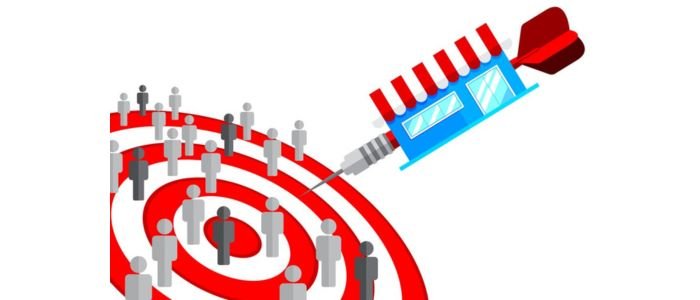
People seeking addiction treatment are people or families facing emotional and urgent decisions. Every form submission, click, or call is driven by a mix of practicality, trust, and urgency. When you understand their mindset, you connect better with them and provide a real solution.
Why Local Relevance Builds Trust?
In the addiction treatment space, trust is everything, and geotargeting serves as an ad campaign optimization for addiction treatment centers. A recovery center that feels local seems more connected and approachable. Patients and their families feel more confident knowing that a treatment facility operates under familiar state regulations, is nearby for visits, and understands their community.
Ways Local Relevance Builds Trust:
- Regional identity in marketing materials and recognition of local landmarks
- Positive local reviews from nearby residents
- Cultural familiarity with the patient’s community
- Proximity for family support during treatment
The Effect of Urgency in Decision-Making
When taking addiction treatment decisions, they happen under extreme pressure. Family intervention, legal situation, or healthcare can impel someone to get help. In such situations, patients don’t usually explore endless options; they want the clearest path to recovery and fast.
Key Urgency Factors:
- Next-day or same-day intake can boost admissions
- Preference for instant contact, quick response time, and click-to-call buttons matter
- High emotional stakes, decisions are usually made in crisis
- Short decision timelines, days or sometimes hours
How Addiction Treatment Seekers Search Online?
When a person wants help, they use Google and search in a very specific way. They use phrases like ‘alcohol detox in [city]’ or ‘rehab near me’ are common. Most seekers click one of the first few results. These searches are mostly done on mobile. If your recovery center does not show up for such high-intent searches, you are being overlooked.
Common Search Patterns Include:
- Relying on Local Service Ads and Google Maps for contact information and directions
- Clicking on paid or organic top-ranked listings
- Searching on mobile phones for quick results
- Using location-based keywords
How Geotargeting Works in Addiction Treatment Lead Generation?
Geotargeting is a process of delivering ads to patients in a specific geographic area, making sure that your marketing focuses only on clients within your service area. For recovery centers, this means showing ads to people who can travel and enroll in your facility. By using tools like IP-based targeting, Facebook Ads, and Google Ads, you can pinpoint your audience to the accurate locations where the ideal patient lives. This reduces wasted ad spend and improves lead quality.
ZIP Code vs. Radius Targeting
- ZIP Code Targeting for Precision: Target specific postal areas that bring high-quality leads.
- Radius Targeting for Broad Coverage: Draw a circle around your treatment center to capture people within a specified distance. This is perfect for urban areas having overlapping ZIP codes.
- Combine for Best Results: Many recovery centers mix both of these methods, using ZIP code targeting for accuracy and radius targeting to maximize lead quality and efficiency.
SEO for Local Searches
- Use Local Keywords Across Your Site: Use different phrases that suggest search engines where you operate. This makes it easier for local searches to find your addiction treatment center.
- Optimize Your GBP (Google Business Profile): A complete GBP boosts the chances of appearing in local search results and Google Maps. Add reviews from real patients or families, photos, business hours, and accurate contact information.

Facebook & Instagram Local Audience Targeting
- Add Behavioral Filters: Coat in interest targeting, like mental health awareness or recovery support, to sift your audience. This ensures that ads reach people who need your services.
- Reach People Based on Their Location: Meta Ads (Facebook and Instagram) enable targeting a radius around a pin drop, postal code, or city. You can filter by recent visitors or residents, helpful for reaching locals and those who want to travel for care.
9 Organic Geotargeting Strategies for Addiction Treatment Centers
Addiction treatment facilities can use low-cost and a range of organic geotargeting tactics to attract, nurture, and capture leads. Below are multiple ways to do it.
Content Marketing Customized for Local Communities
People acknowledge the content that suggests relevance to their surroundings. The more local your content is, the more trustworthy and relatable it becomes. Post videos that have community figures or familiar landmarks to create a connection. Share patients’ success stories from people in the same region (with consent), and write blog posts about local addiction recovery law, news, and events.
Local SEO (Reviews, City Pages, Geo-Keywords)
Search engine optimization is a powerful way to appear at the top of SERPs for addiction treatment options. It works exceptionally well for addiction treatment centers that want to target the nearby audience. When someone searches for ‘addiction treatment near me’, local SEO ensures that your treatment facility is at the top of the results.
- Request satisfied patients and their families to leave a Google review. This influences trust and local ranking.
- Create state or dedicated landing pages optimized for every service area.
- Use geo-keywords
Partnerships with Local Organizations
Creating strong alliances with various community groups can dilate your reach. These partnerships strengthen credibility within the local community and extend your network. Work with cultural groups or religious organizations to provide targeted support. Partner with employers who may refer an employee who needs treatment. Collaborate with non-profits, counseling centers, or local hospitals to share resources.
Event-Based Marketing (Health Fairs & Community Outreach)
Events set your recovery center as a service provider and a trusted community resource. Events can build trust faster compared to digital ads alone. You can host events like:
- Sponsoring awareness campaigns, school programs, or local charity runs to raise visibility.
- Participating in different health fairs to meet referral sources and potential clients.
- Hosting free educational seminars about addiction treatment or recovery at community centers and local libraries.
SMS & Email Campaigns Segmented by Location
This makes the outreach personalized instead of generic. Since all leads are not located in the same area and are at different levels of decision-making, segmenting your contact list by stages and location allows you to:
- Provide resources about local addiction hotlines or nearby support groups.
- Offer timely reminders for open houses or local events.
- Send location-specified program updates.
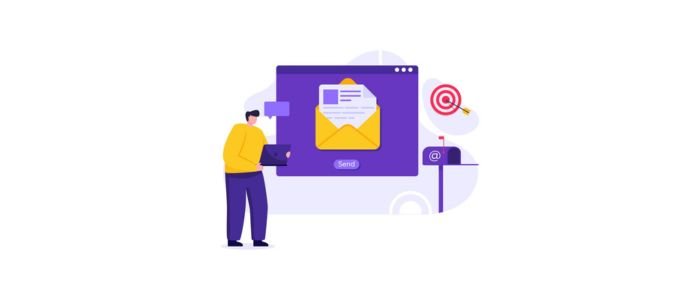
Pay-Per-Call with Geotargeting
Pay-per-call campaigns allow you to only pay when someone calls your recovery center. It is a high-intent lead generation source when combined with geotargeting, which ensures you only get calls from your service area that are routed to the admissions staff.
Benefits of Pay-Per-Call + Geotargeting
- Operates perfectly with dedicated pay-per-call networks and Google Ads call extensions.
- Connects recovery centers directly with patients who want to get admitted.
- Filters out calls from outside your treatment region.
Retargeting Based on Past Local Visitors
Most patients researching addiction treatment do not commit instantly. Retargeting allows you to stay evident after their first visit.
How to Retarget:
- Offer free assessments or downloadable guides to motivate re-engagement.
- Show them ads that highlight your recovery center’s special programs or success stories.
- Use location filters to retarget visitors only within your service area.
Running Geofenced Display Ads
Geofencing helps addiction treatment centers to create a virtual boundary around specified locations, like recovery support organizations or hospitals. When a person enters the area, they are shown your ads on their phones.
Implementation Ideas:
- Promote events like community wellness days or free screenings.
- Reach family members visiting a loved one in treatment.
- Targeting waiting rooms of local hospitals for patients looking for post-discharge care.
Use Google LSAs (Local Service Ads)
Google LSAs are pay-per-lead and show at the top of local search results instead of pay-per-click. They also display your treatment facility’s Google Screened badge. This boosts credibility to a very different level.
Why It Works:
- Trust signals and high visibility enhance click-through rates.
- You pay only for valid leads.
- LSAs target patients in your service area precisely.
Why Geo-Targeted Landing Pages Boost Conversions?
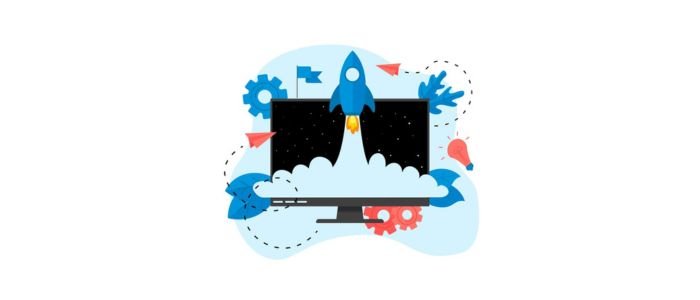
When visitors see a landing page customized according to their region, state, or city, they feel as if the service was designed for them. This builds trust and creates a sense of familiarity, giving a personalized user experience.
Benefits:
- Delivering relevant contact details, like a map, address, or local phone number.
- Using community references or familiar landscapes in ad copy and visuals.
- Addressing local regulations and concerns.
Stronger Conversion Rates
A patient will most likely fill out a form or call if they see that you are accessible or close. Accessibility helps in reducing the decision-making cycle and removes doubts about distance. This turns clicks into real admissions.
Improved Search Rankings
Search engines give benefits to websites that have relevance. By designing separate landing pages for every location that your addiction treatment center serves, this increases the chances of ranking geo-specific keywords.
SEO Advantages:
- Increased clicks from GBP (Google Business Profile) listings that link to local pages.
- Ability to target various cities without keyword overlap.
- Higher visibility for location-based searches.
5 Benefits of Geotargeting for Addiction Treatment Centers
1. Enhanced Local Brand Awareness
When an addiction treatment facility continuously shows up in community-targeted content, local ads, and search results, it builds a good reputation within the specific area. Gradually, people start associating and noticing your treatment facility with trust and local authority. This ensures that your recovery center stays top of people’s minds for word-of-mouth recommendations and future referrals. This helps greatly with immediate lead generation.
2. Improved ROI
Marketing and advertising budgets in healthcare are tight, and every cent counts. By pushing efforts on a specific region having the highest likelihood of generating leads or admissions, you can maximize ROI. Geotargeting helps in allocating resources to high-performing regions, cities, or zip codes so that you benefit more from every campaign.
3. Better Call Quality
If someone from outside your service area calls, it frustrates the caller and wastes time for your admissions staff. By implementing precise geotargeting, you can restrict the exposure to non-serviceable regions. This means that your phone will ring with qualified leads and people who are able and ready to begin treatment in your recovery center.
4. Reduced Ad Spend Waste
Without any geotargeting strategy, your ads can reach people hundreds of miles away or even in states where you don’t serve. Every unrelated click lowers ROI and drains your budget. Geotargeting helps addiction treatment centers to filter out locations where the services are not available. This makes sure that each marketing penny goes toward patients who want to heal at your recovery center.
5. Higher Conversion Rates
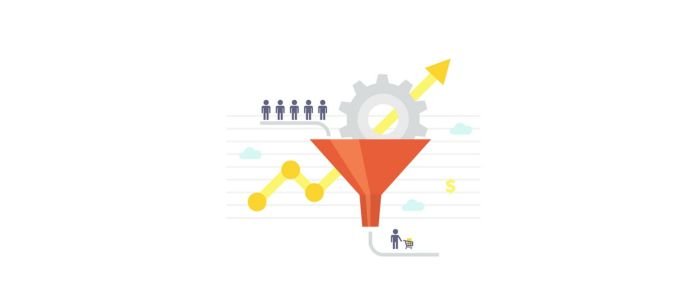
When your content or ads appear only to the audience within your service area, you are attracting people who want to take the next step. If your recovery center is located in a specific city, targeting people in nearby suburbs or cities means that your message is reaching people who can attend your program realistically. Such relevance allows addiction treatment centers to turn more calls and clicks into admissions.
Mistakes to Avoid in Geotargeting for Addiction Treatment in Lead Generation
Overlooking Lead Source Analysis & Call Tracking
With no call tracking system, you cannot measure which campaign, ad, or location is delivering results. This results in poor optimization decisions and wasted budget.
Solution:
- Adjust targeting based on real performance data.
- Integrate with CRM to track lead-to-admission rates.
- Use call tracking software to tag calls by location and record calls.
Not Optimizing for Mobile
Most patients looking for recovery centers do it via their mobile phones, especially if it is urgent. If your landing page is not mobile-friendly, you might lose high-intent leads.
Mobile Optimization Tips:
- Keep forms easy to fill out and short.
- Use large click-to-call buttons.
- Make sure pages load in 3 seconds.
Ignoring Local SEO for Paid Ads Only
Recovery centers usually depend on Google Ads or Facebook campaigns and abandon their organic visibility. This becomes insecure since organic GBP, local map listings, and organic search results usually drive cost-free and high-quality leads.
Best Practices:
- Build location-based landing pages.
- Add geo-targeted keywords in content, meta descriptions, and titles.
- Optimize your GBP with NAP (Name, Address, Phone).
Targeting Too Narrow or Too Wide
Among many, the common mistake is setting location parameters that are either overly restrictive or too broad. If the set radius is too wide, you will waste ad spend on clicks from patients outside your service area. If it is too narrow, you could miss patients in nearby towns who want to travel.
Avoid This By:
- Reviewing the location of your highest-converting leads.
- Combining ZIP codes with city names for more accuracy.
- Testing various radius settings.
Conclusion
Geotargeting is a way to connect with patients where it matters the most. By shifting focus to the communities you can serve and create a path that is practical and personal. A right location strategy can make the first step for patients faster and easier. Instead of casting an expensive and wide net, geotargeting allows you to meet patients in the cities, towns, and neighborhoods where help feels accessible and close.
It is about showing up with the right message, in the right place, and at the right time. When done strategically, geotargeting becomes outreach with purpose and a lead generation source, ensuring that patients find you when they are ready to reach out.
FAQs
What are the benefits of geotargeting in addiction treatment lead generation?
Geotargeting provides more relevant messages to your targeted audience, makes marketing campaigns more effective for improving revenue, and increases in-person and online traffic.
What is geotargeting in addiction treatment lead generation?
Geotargeting is the method of providing ads or content based on a user’s location, like their IP address, ZIP codes, city, or country.
How to use geotargeting in addiction treatment lead generation?
Advertisers and marketers target specific areas for their ads and customize their visuals and language to match the local audience.
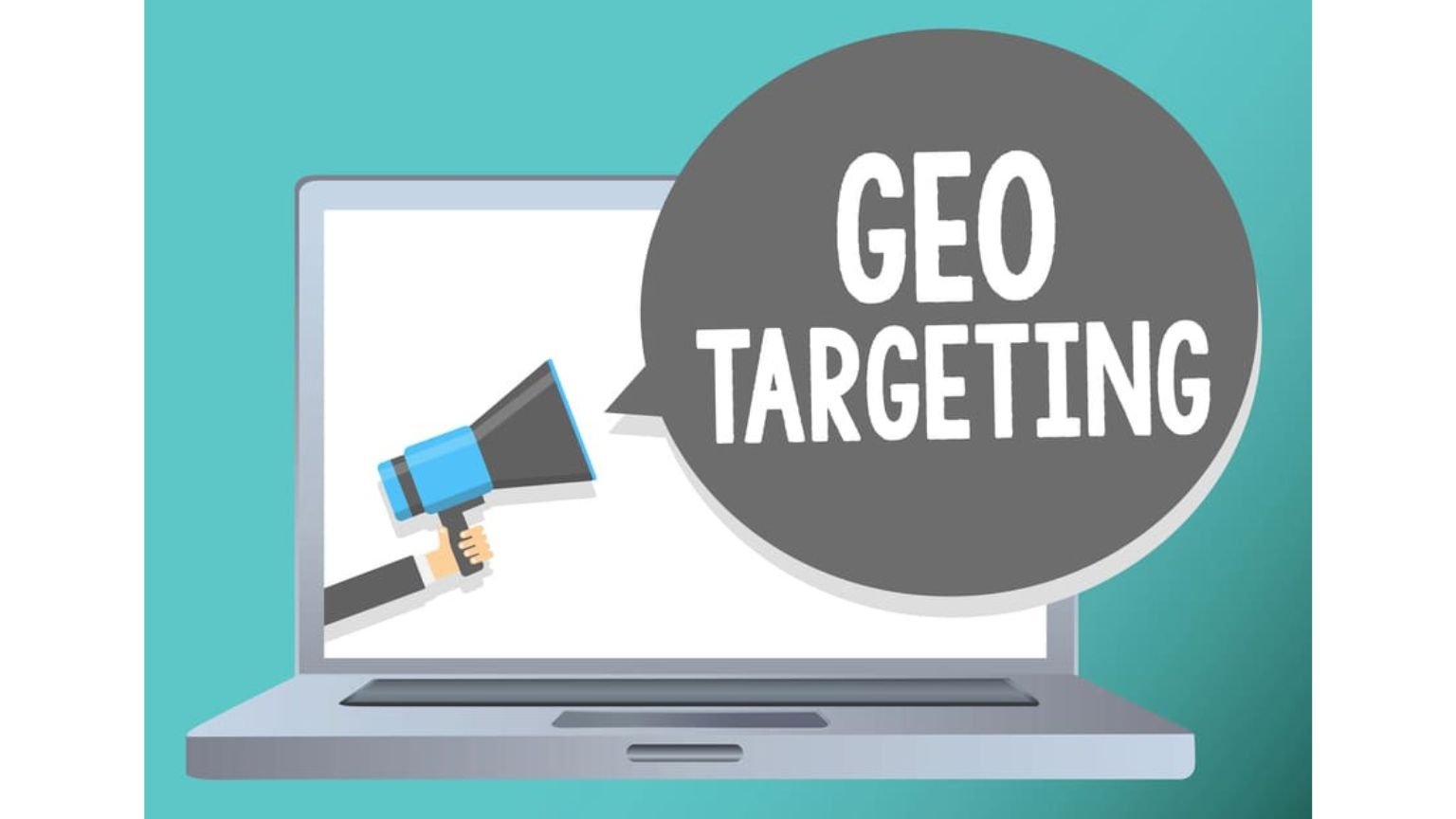

Leave a Reply